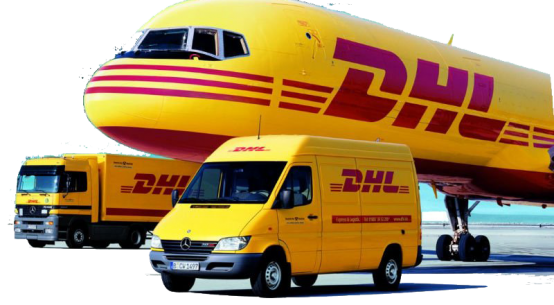
Ejine Nzeribe, British Chevening Scholar and published author of Inspiring Growth: The History of Red Star Express gives a professional prescription on how to run a successful logistics business.

INTRODUCTION
Movement encapsulates the current logistics and supply chain industry – the movement of goods and services, envelopes, small, large and bulk packages, equipment, manufacturing supplies, spare parts, homes, offices, food, you name it.
E-commerce is undoubtedly the new kid on the block. The sheer aggrandizement of its power, powered by ‘technological logistics’ requires the need for a sharpened new order in the way supply chain and logistics companies run their businesses. The critical success factors remain the same if not more heightened by the power of the customer.
Yes, the customer wants the best and knows the best. Discerning as he is, he can find the best himself courtesy of the unbridled power of technology. Every company has to be on its toes in our customer-centric world.
The critical success factors in this industry remain security and safety, trust and dependability, speed and prompt deliveries across the globe, bespoke tracing and tracking of packages/shipments and training/development in operations and distribution, sales and customer service.
Why do some logistics companies fail to meet the mark? There is no reliable yardstick. Experience, however, suggests that critical questions have most probably not been addressed or answered which can make a huge difference between successful and not so successful companies.
- Do you have adequate financing for the business?
- Are your people committed and engaged in meeting company goals?
- Do you have a compelling and inspiring vision of the future and a mission of how to get there?
- What are your core beliefs and values?
- Have you invested in your human capital?
FINANCING
A misconception of what it costs to set up a logistics and supply chain company, no matter how small is a sure sign of failure. I am reminded of the phrase “champagne taste but beer money”, having high aspirational taste without commensurate funds to fuel the taste.
Truth is that making money costs money and not looking at all the costs without relegating any in the background, is a sure sign of failure. You need to know how much you need.
PEOPLE
Companies don’t spring up from nowhere. People build them. Enough has been said about having the right people with the right skills doing the right jobs. This description does not necessarily translate to success. Do the people rock? Are they working in teams? Are they committed and engaged?
Do they feel a sense of belonging and ownership in the company? I tell you, people can perform the magic required to be and remain successful if you let them, if you trust them, if you develop them and if you treat them well. Your people must rock to rock your company!
STRATEGY
The right to rock falls flat on its face where there is no vision. And it’s not about having visions and missions on plaques around the company grounds bereft of life and meaning. Strategy remains the guiding light of any company worth its salt.
That move from the present to the desired state and subsequent moves thereafter propels the life of the company giving it a reason to rub shoulders with others and “out best” them in the fight for profit, relevance, image, customer share and all the things that make a company rock.
CULTURE
The dramatic expansion of a logistics and supply chain business can only happen when you have in place a set of values that represent the culture of the company. If one of your values in integrity you and others that come after you must be seen to live integrity.
The easy part is lighting the flame of passion for a company culture. The difficult part is sustaining that passion by keeping it alight. Culture is about how things are done not just the values. How do we talk to people, how do we greet, how do we dress, what is most important to us in our company?
And our culture is not just a contraption of words on marble; it’s our very essence, which everyone reflects. Truth is your company will be successful if you remember who you are and what you stand for.
DEVELOPMENT
Most companies today are fixated on sustainability and rightly so in an intransigent competitive world for the hearts and minds of customers.
It’s about doing more with less and creating long-term stakeholder value utilizing multifaceted concepts such as efficiencies, innovation, meritocracy, diversity, people development and long-term planning.
An area that is seemingly relegated to the background is employee development which can be understandable when recession periods rear its head, but also risky if you want to retain your talent and be assured of intellectual consistency in your business.
The world of technology now makes this an easier venture with copious amounts of literature on the world-wide-web. Yet these need to be guided, controlled and systematic to build best practices and sustainability. This is common sense.
Aside from these is the usual inertia companies face when they seem to have cut it in the corporate world. They don’t listen, they don’t innovate, they don’t build value, wallowing in a false sense of achievement. Nothing lasts forever.
Follow us on Twitter for more Logistics News Follow us on Facebook for more Logistics News
Not stopping to review the way things are done for better improvement, and to rejig processes and procedures for continuous growth are the bane of unsuccessful companies.
This is especially so for logistics and supply chain companies, which are highly technologically driven and require speed, safety, promptness through fast-moving chains of operations. Eyes have to remain on the ball all the time … that’s the only way goals are scored deftly. Because after all is said and done, successful companies plan to replicate and grow.
You can follow Ejine Nzeribe on LinkedIn or on Facebook to gain more insights on the topic. Also read her book Inspiring Growth: The History of Red Star Express








